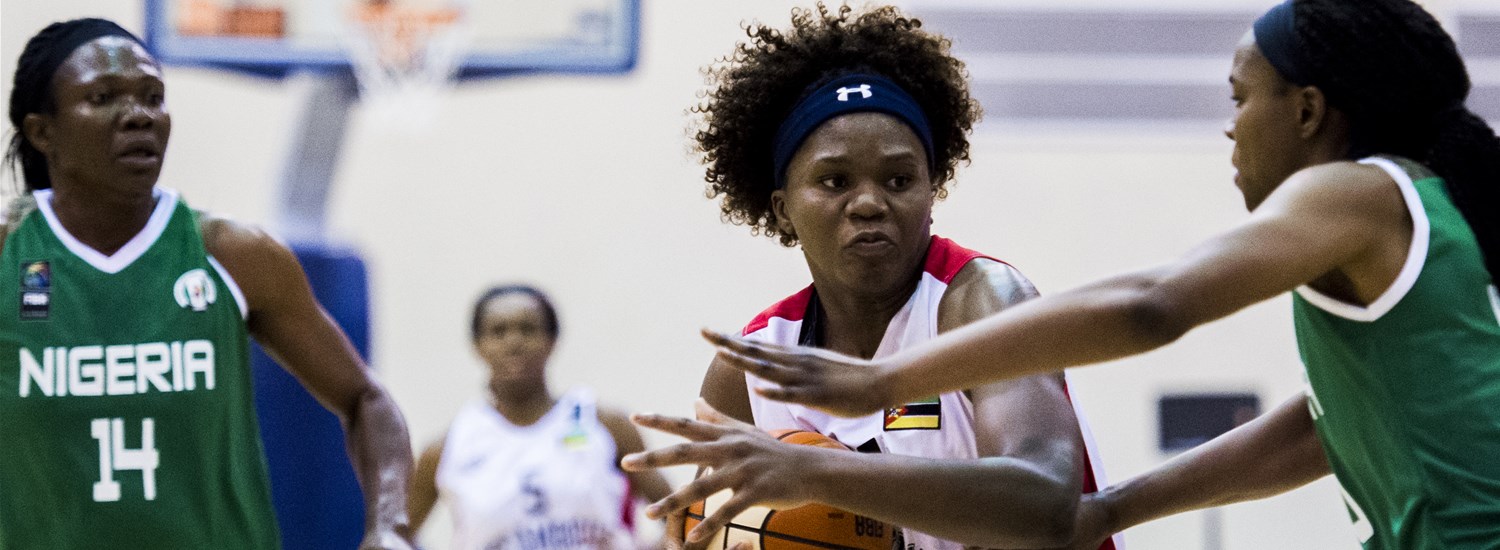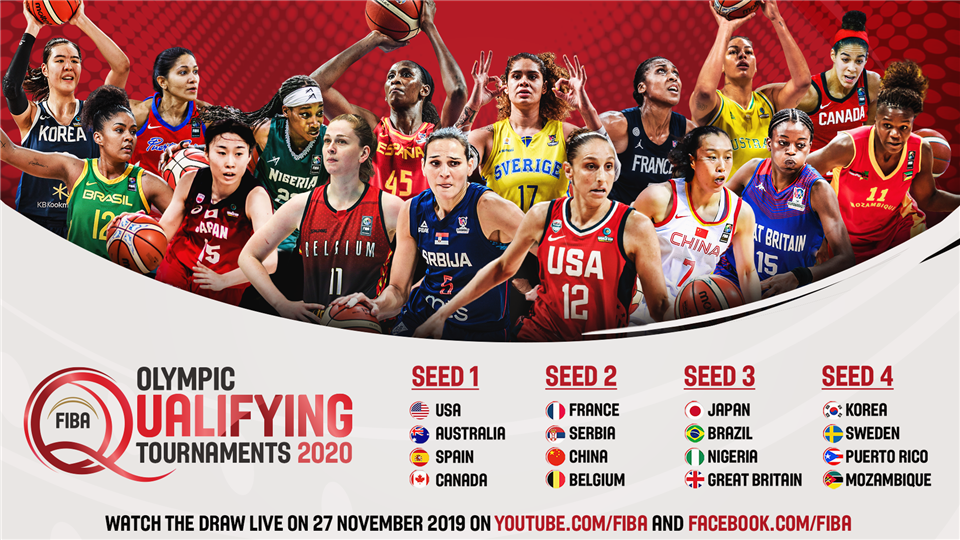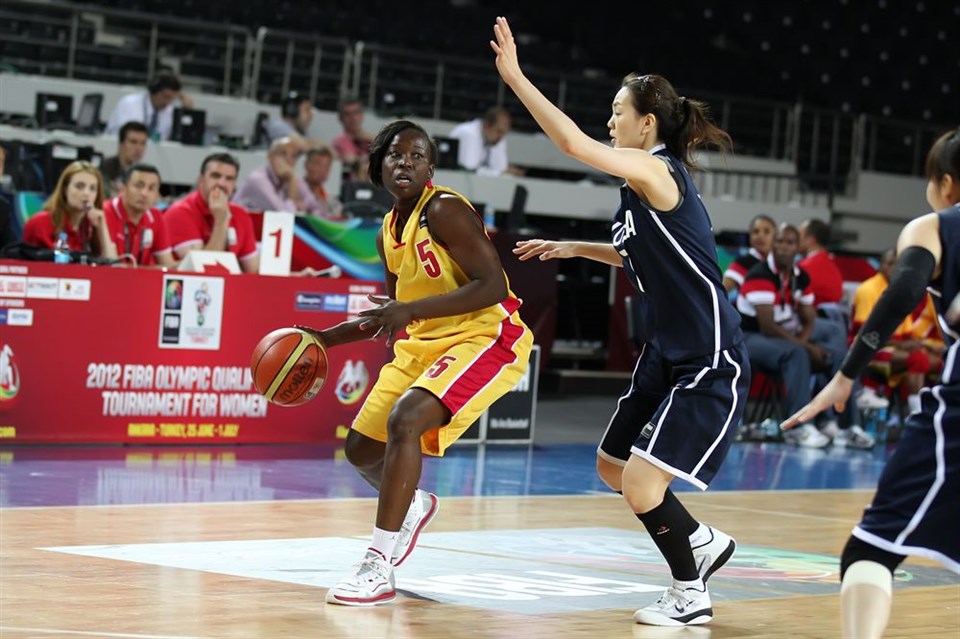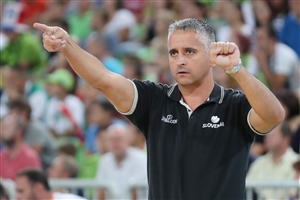
What next for Mozambique and Nigeria at 2020 FIBA Women's Olympic Qualifier?
LEEDS (Julio Chitunda's African Message) - Nigeria and Mozambique secured the two tickets on offer for African teams for the 2020 FIBA Women's Olympic Qualifying Tournament (WOQT), but the inevitable question is 'What next for both teams?'.
If Nigeria and Mozambique are to be judged by their FIBA World Rankings, it's fair to expect different outcomes for the two WOQT African representatives next year mainly because of their world stage experiences although something special might happen this year.
Comparatively, Nigeria seem better-equipped than their African counterpart, and might be able to cause a lot more damage in the WOQT than Mozambique.

At No.17 in the world, Nigeria rank above WOQT-bound South Korea (19), Great Britain (18), Sweden (22), Puerto Rico (23) and Mozambique (43), and they can cause some damage wherever host city they are drawn in.
In the 2016 WOQT in the French city of Nantes, Nigeria beat South Korea 70-69, but a 71-60 loss to Belarus on Day-1 proved costly to them as it ended their dream of advancing to the 2016 Rio de Janeiro Olympics.
The Nantes showpiece may have been a disappointment for the Nigerians, but it made them stronger. Highly-motivated to turn things around, Nigeria not only won the African Championship the following year, but they went on to make a statement at the 2018 FIBA Women's World Cup in Tenerife where they became the first African team to reach the Quarter-Finals.
It's based on Nigeria's recent progress on the world stage that I believe that they have everything in their power to reach the Olympics for the first time since 2004.
As for Mozambique, they secured one of the two African spots (along with Mali) for the 2012 WOQT in Ankara, Turkey, in special circumstances. Despite finishing fifth in the 2011 FIBA Women's AfroBasket, they replaced runners-up Senegal in the race to the London Olympics.

The Senegalese pulled out of the WOQT, leaving fourth-placed Nigeria to take their spot, but the Nigerians turned the offer down, opening an opportunity for Mozambique who had finished fifth in the African Championship the year before.
In their first-ever world staged competition, Mozambique were eliminated after two straight losses to South Korea and Croatia, but they capitalised from the experience by qualifying to their first FIBA Women's World Cup in 2014.
Although Mozambique's results at both world tournaments (0-5) left something to be desired they currently present a talented team that can prove doubters wrong, just as they did last week by eliminating African powerhouse Senegal in the FIBA Women's Olympic Pre-Qualifying African Tournament.

But how did they reach the 2020 WOQT?
Beating hosts Mozambique in Group B of the FIBA Women's Pre-Qualifying African Tournament last week in Maputo was an incredible result for Nigeria, especially after suffering a heartbreaking Quarter-Finals defeat against eventual finalists Mozambique in the African Championship 2013 in the same Maxaquene Gymnasium.
And, outscoring a desperate Mali team twenty-four hours later in the Semi-Finals was not only the assurance that Nigeria needed to return to the WOQT for the second time in a row, but, more importantly, it was a statement of their dominance in Africa.

As for hosts Mozambique, a 57-48 defeat against Nigeria had a wake-up call effect on them, as they knew beforehand that beating Senegal could become their biggest success this year. It was a must-win game, and Leia Dongue, Ingvild Mucauro and Tamara Seda delivered it in style.
And, both countries' Basketball Federations know better that their teams cannot be neglected if they are to make some impact in the WOQT. Winning and dominating Africa is great, but replicate that success on the world stage and qualify to the Olympics via WOQT is even better.
We'll find out more about Nigeria and Mozambique's WOQT feat on Wednesday, November 27 when FIBA announce the tournament's draw.
Julio Chitunda
FIBA
FIBA's columnists write on a wide range of topics relating to basketball that are of interest to them. The opinions they express are their own and in no way reflect those of FIBA.
FIBA takes no responsibility and gives no guarantees, warranties or representations, implied or otherwise, for the content or accuracy of the content and opinion expressed in the above article.

















